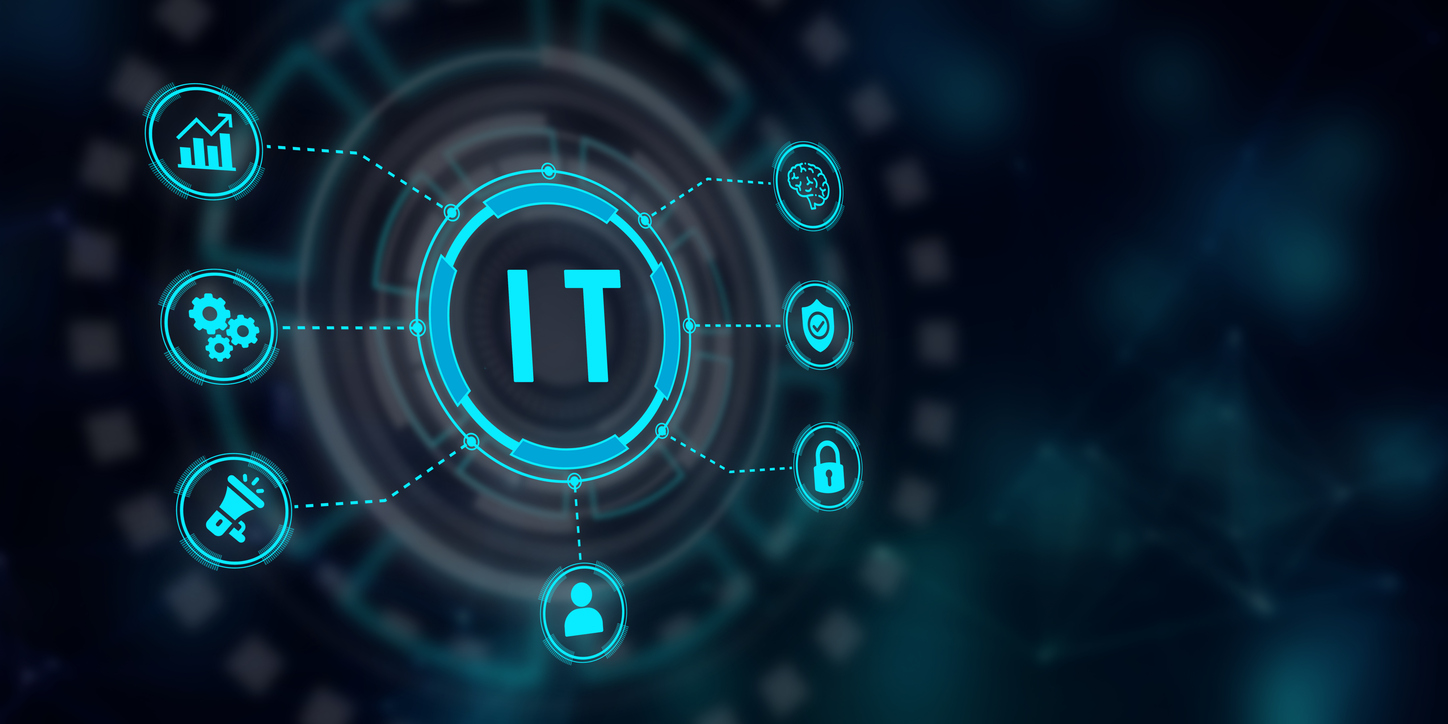Quick answer: For mid-size companies, the right managed IT partner should provide: 24/7 monitoring, layered cybersecurity, cloud strategy, tested backup and disaster recovery, clear SLAs and contracts, transparent pricing, strong references in your industry, and a collaborative, responsive culture. Providers like Magna5 combine these into a fully managed, integrated, multi-layered cybersecurity and IT solution tailored to mid-size organizations, typically in the 50–500 employee range.
Key takeaways for mid-size businesses (50–500 employees).
- Treat your MSP as a long-term strategic partner, not a help desk vendor.
- Require 24/7 monitoring, proactive patching, and documented incident response.
- Insist on layered cybersecurity and compliance support aligned to your industry.
- Use clear SLAs, fair contracts, and transparent pricing to compare providers.
- Favor MSPs like Magna5 that offer integrated cybersecurity, cloud, and support under one managed framework.
Why growing mid-size companies need a managed IT partner.
Mid-size organizations have outgrown “best effort” IT but often lack the budget and talent pool for a full internal IT team.
As you:
- Add locations or remote offices
- Migrate workloads to the cloud
- Face more frequent and sophisticated cyber threats
…the complexity, risk, and compliance pressures climb fast.
A managed IT partner like Magna5 delivers:
- Enterprise-grade infrastructure and security, leveraging enterprise-class tools, processes, and architectures appropriate for mid-size organizations
- Predictable monthly costs
- Strategic guidance, not just ticket resolution
This shifts your IT posture from reactive firefighting to proactive planning and measurable risk reduction.
Core capabilities every reliable MSP must provide.
24/7 monitoring and support.
What to require:
- Continuous monitoring of networks, servers, endpoints, and critical apps
- Real-time alerts for performance issues and security events
- A staffed help desk available 24x7x365—not just an answering service—for critical issues
Why it matters:
- After-hours outages, ransomware attempts, and hardware failures are common.
- Delayed response can turn a minor incident into a costly outage.
Magna5, for example, provides 24/7 security and network monitoring and response to detect, triage, and remediate issues in real time for mid-size clients.
Proactive maintenance and patch management.
Reactive IT is expensive: more downtime, more emergencies, more user frustration.
Look for MSPs that:
- Schedule regular maintenance windows
- Automate OS, firmware, and application patching
- Provide health reports on servers, endpoints, and network devices
- Tie patching into vulnerability management and compliance needs
This approach reduces incidents, extends hardware life, and can be aligned to common frameworks such as NIST, CIS Controls, HIPAA, PCI-DSS, and SOC 2, depending on your specific requirements.
Cybersecurity and compliance expertise.
Mid-size companies are now prime targets for cybercriminals because they often have valuable data but inconsistent defenses.
A strong MSP should deliver a multi-layered cybersecurity stack, including:
- Next-gen firewalls and secure remote access
- Endpoint Detection and Response (EDR/XDR)
- Email security and phishing protection
- Identity and access management (e.g., MFA, SSO policies)
- Regular vulnerability scanning and remediation
- Security awareness training and phishing simulations
If you’re in a regulated industry (healthcare, finance, legal, manufacturing, etc.), verify they can:
- Help you align controls to frameworks and regulations such as HIPAA, PCI-DSS, SOC 2, and similar standards where applicable
- Provide audit-ready logs, reports, and evidence of controls
- Support incident response plans and tabletop exercises
Magna5 focuses on fully managed, integrated, multi-layered cybersecurity built specifically for mid-size organizations that need enterprise-grade protection without enterprise-level overhead.
Cloud strategy, migration, and management.
Many mid-size companies now run in hybrid or cloud-centric environments.
Your MSP should:
- Advise on platform choice (with strong expertise in Microsoft 365, Azure, and private cloud)
- Design secure, scalable, and cost-optimized architectures
- Execute migrations with minimal downtime and clear rollback plans
- Continuously monitor performance, security, and spend
Go beyond simple “lift-and-shift.” Strategic MSPs help you adopt:
- Cloud-native services (e.g., modern PaaS services, managed databases)
- Zero-trust security principles
- Automated backup and DR in the cloud
Backup, disaster recovery, and business continuity.
A single unrecoverable incident can cripple a growing business.
Require your MSP to:
- Implement automatic, encrypted backups (on-site + off-site/cloud)
- Define and meet clear Recovery Time Objectives (RTO) and Recovery Point Objectives (RPO)
- Perform and document regular restore tests
- Maintain a written business continuity and disaster recovery (BC/DR) plan
Ask for:
- Evidence of recent recovery tests
- How quickly they can restore a critical system
- How they handle regional events (e.g., power outages, natural disasters)
Magna5 designs DR strategies specifically for mid-size organizations, often in the 50–500 employee range, so they can resume operations quickly and confidently after cyber incidents or infrastructure failures.
Evaluating technical expertise and industry fit.
Not all MSPs are equally deep or specialized.
Steps to validate expertise:
- Review sector-specific case studies and references in your industry.
- Check certifications, such as:
- Microsoft and Azure partner levels
- Cisco networking certifications
- AWS or other cloud provider credentials
- Cybersecurity credentials like CMMC Level 2, Soc 2, PCI DSS, etc.
- Verify experience with your core systems, e.g.:
- ERP and finance platforms
- CRM and collaboration tools
- Vertical-specific software (EMR/EHR, manufacturing MES, legal apps)
- Schedule a technical discovery session with engineers, not just sales.
- The depth and relevance of their questions reveal if they truly understand your environment and can tailor solutions instead of pushing generic bundles.
Assessing communication, responsiveness, and culture.
Technology alone is not enough. The relationship is what makes the partnership work.
Evaluate:
- Responsiveness during the sales cycle (how quickly and clearly they answer).
- Clarity of proposals (plain language vs. jargon, clear scope, and outcomes).
- Support model: ticketing, escalation, and communication channels.
- Consistency: Will you get a dedicated account manager or technical lead?
Questions to ask:
- How do you define ticket priorities and target response times?
- How do you communicate during critical incidents?
- How do you keep non-technical stakeholders informed?
Choose a partner whose culture aligns with yours: transparent, collaborative, and accountable. Magna5 emphasizes clear communication, executive-ready reporting, and a collaborative approach to IT and cybersecurity strategy.
Understanding SLAs and contract terms.
Your service-level agreement (SLA) and contract define how the relationship works when things go wrong.
Non-negotiable elements:
- Uptime guarantees (e.g., 99.9% or better for critical services)
- Response and resolution targets for each priority level
- Measurable metrics (MTTR, first-contact resolution, etc.)
- Remedies: service credits or financial penalties for missed SLAs
Review contract terms for:
- Initial term length (12 months is common for new relationships)
- Early termination fees and conditions
- Data ownership and return of data upon exit
- Documentation handoff if you change providers
- Scope of services vs. project work and change requests
Reliable MSPs like Magna5 welcome contract and SLA scrutiny because it clarifies expectations and builds trust.
Pricing models and total cost of ownership.
In many mid-size environments, fully managed IT and security services are typically sold using models such as per-user, per-device, or flat monthly fees tied to a defined scope and SLA. Actual pricing varies significantly by provider and by environment based on scope, security level, compliance requirements, and complexity.
Common models:
- Per user (most predictable for growing firms)
- Per device (sometimes used for specific environments)
- Flat monthly fee (tied to a defined scope and SLA)
What to request in proposals:
- Itemized costs for:
- Monitoring and management
- Help desk and on-site support
- Cybersecurity services
- Cloud management and backup/DR
- One-time onboarding or project fees
Watch for:
- After-hours or emergency surcharges
- Fees for adding sites or new systems
- Vague “miscellaneous” or “management” charges
Compare based on value and risk reduction, not just price. A low-fee MSP with weak security and slow support can cost more in downtime, breaches, and productivity loss than a premium provider that helps prevent incidents and accelerates growth.
Magna5 emphasizes transparent, predictable pricing tied to clearly defined outcomes and a fully managed, integrated cybersecurity and IT stack.
Red flags when evaluating MSPs.
Be cautious if you see:
- Reluctance to provide references or case studies
- No clear explanation of security controls and incident response
- Cookie-cutter proposals that ignore your specific systems and risks
- Aggressive sales tactics or unrealistic “unlimited” promises at very low prices
- High turnover among engineers and account managers
- Poor online reputation and frequent complaints about billing or responsiveness
If a provider cannot explain how they protect your data, measure their performance, and support your growth over the next 3–5 years, keep looking.
Essential questions to ask prospective MSPs.
Use these prompts during your RFP or interview process:
- How do you handle after-hours emergencies, and what are your average response and resolution times?
- Can you share examples of mid-size clients in our industry and the specific challenges you solved?
- What cybersecurity frameworks and standards guide your services, and how do you stay current with emerging threats?
- How often do you test disaster recovery and incident response plans, and can we review the outcomes?
- What is your onboarding process, who is involved, and how long does it usually take for a mid-size company?
- Who will be our primary point of contact, and what is their technical and business background?
- How do you measure and report on service performance and security posture to executives?
- What happens if we outgrow your services or decide to build more in-house IT capability?
The depth and transparency of the answers are strong indicators of the MSP’s maturity and fit.
Making the final decision.
Once you narrow your prospects down:
- Run a pilot or proof of concept.
- Example: outsource support for one department, or have the MSP manage a specific environment (e.g., Microsoft 365, backups) for around 60–90 days as a pilot, depending on scope.
- Gather internal feedback.
- Ask users about response times, professionalism, and clarity.
- Ask IT or leadership about documentation and collaboration.
- Validate everything in writing.
- Ensure SLAs, security commitments, onboarding deliverables, and pricing are all in the contract.
An experienced partner like Magna5 will proactively surface risks, recommend improvements, and treat the pilot as the start of a long-term partnership, not just a test.
FAQ: Managed IT for mid-Size companies.
Q: What is the typical cost range for managed IT services for mid-size companies?
A: Costs for fully managed IT and security services can vary widely based on business size, scope (support, cybersecurity, cloud, compliance), and environment complexity. Many providers structure services on a per-user or per-device basis or via flat monthly fees for a defined scope. Any example ranges you see should be treated as general market context rather than specific pricing from any single provider.
Q: How long does it take to onboard with a new managed IT partner?
A: Most mid-size onboarding projects typically take 30–90 days, depending on the complexity of your environment and the scope of services. This usually includes discovery, documentation, tool deployment, access and security configuration, knowledge transfer, and staff training.
Q: Should we choose a local MSP or a national provider?
A: Local MSPs often provide faster on-site support and in-person relationships. National providers typically offer deeper benches, 24/7 security operations, and standardized processes. Many mid-size firms choose a national partner like Magna5 that can deliver both remote-first expertise and on-site support when required.
Q: What certifications should we look for in a managed IT partner?
A: Seek providers with relevant vendor and security credentials, such as:
- Microsoft and Azure partner designations
- Cisco networking certifications
- AWS or other cloud provider accreditations
- Cybersecurity credentials like CMMC Level 2, Soc 2, PCI DSS, etc.
Q: Can we switch MSPs if we are unhappy with our current provider?
A: The difficulty depends on contract terms, data ownership, exit clauses, and how well your systems and documentation are maintained. Clarify exit processes and data return requirements before signing with any new provider.
Q: How often should we review our MSP relationship?
A: Conduct formal quarterly business reviews (QBRs) to:
- Review performance metrics and incident trends
- Align IT and cybersecurity roadmaps with business goals
- Adjust scope, SLAs, and budgets as your organization evolves
About Magna5
Magna5 specializes in fully managed, integrated, multi-layered cybersecurity and IT services for mid-size organizations, typically in the 50–500 employee range. Magna5 combines:
- 24/7 monitoring, help desk, and incident response
- Multi-layered cybersecurity and compliance support
- Cloud strategy, migration, and ongoing optimization (with strong expertise in Microsoft 365, Azure, and private cloud)
- Tested backup, disaster recovery, and business continuity
By acting as a true extension of your team, Magna5 helps growing companies reduce risk, control IT costs, and use technology as a driver of growth.












